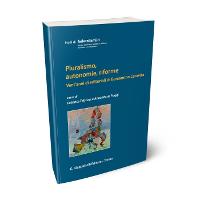
Log in or Create account
FOCUS - Il federalismo in tempi di transizione N. 2 - 22/06/2018
African Federalism and Decentralization in Action: Evidences of a Blurred Story from Kenya and South Africa
Since the last decades of the past century, almost all African States have introduced federalism or other forms of distribution of power at local level. These institutional arrangements are designated by different terms, notably ‘federations’, ‘decentralized systems of government’, and ‘devolved governments’. Like a number of broad legal and political concepts, as “constitutionalism”, “participation” or “democracy”, federalism and decentralization may assume different meanings for different people in different contexts. The proliferation of legal systems that claim to be federal or decentralized contributes to the indeterminacy of the two notions. Moreover, when applied to the African continent, they assume an additional “African flavor”, which increases the indeterminacy and makes the analysis even more complex. Despite the tendency to blur the perimeter of significance of the two concepts and make them converge, federalism and decentralization remain different: the former designates a system characterized by a vertical division of powers between the national government and sub-national entities entrenched in the Constitution, whereas the latter indicates a system in which there is a transfer of responsibility from the central government to sub-national entities, which may be simply provided for by ordinary legislation (even though a constitutional provision for decentralization is frequent in decentralized systems). Furthermore, decentralization can assume a political and/or administrative and/or fiscal character and it acquires diverse connotations according to the different degrees of transfer of responsibility: 1) deconcentration, which is the weakest form of decentralization where the center maintains the control over sub-national entities; 2) delegation, which is a more extensive form of decentralization, where central governments transfer the responsibility for decision-making and the administration of public functions to semi-autonomous organizations not wholly controlled by the central government, but ultimately accountable to it; 3) devolution, when central governments devolve functions to quasi-autonomous units of local government with corporate status… (segue)
NUMERO 14 - ALTRI ARTICOLI
-
ITALIA - DOTTRINA
Interventi al Seminario sull'ordinanza n. 1/2018 con cui l'AGCM ha sollevato la sua prima questione di legittimità costituzionale dinanzi la Corte
ITALIA - DOTTRINALo 'sviluppo urbano sostenibile'
ITALIA - DOTTRINADalla 'musealità' nazionale a quella internazionale e ritorno
-
ITALIA - DOTTRINA
Giornate di studio su 'Principio di ragionevolezza delle decisioni giurisdizionali e diritto alla sicurezza giuridica'
ITALIA - DOTTRINALa questione di legittimità costituzionale sul contratto di lavoro a tutele crescenti
ITALIA - DOTTRINALa doverosità del potere di annullamento d'ufficio
-
ITALIA - DOTTRINA
Il GDPR e gli Istituti scolastici



 Registrati
Registrati Login
Login
 Riforme istituzionali e forma di governo
Riforme istituzionali e forma di governo Lavoro Persona Tecnologia
Lavoro Persona Tecnologia Osservatorio di Diritto sanitario
Osservatorio di Diritto sanitario Osservatorio Trasparenza
Osservatorio Trasparenza Africa
Africa Human Rights
Human Rights America Latina
America Latina Territorio e Istituzioni
Territorio e Istituzioni Storico focus
Storico focus Scarica il Documento integrale
Scarica il Documento integrale STUDI FEDERALISMI
STUDI FEDERALISMI





03/06/2024
15/03/2024
29/12/2023
04/08/2023
05/06/2023
30/01/2023
09/12/2022
28/10/2022
28/03/2022
02/02/2022
17/01/2022
12/02/2021
18/01/2021
13/11/2020
12/10/2020
17/06/2020
01/06/2020
18/05/2020
04/05/2020
24/04/2020
10/04/2020
27/03/2020
10/04/2020
25/10/2019
27/09/2019
15/04/2019
25/03/2019
14/01/2019
14/12/2018
16/11/2018
09/11/2018
14/09/2018
03/09/2018
22/06/2018
23/02/2018
27/11/2017
02/10/2017